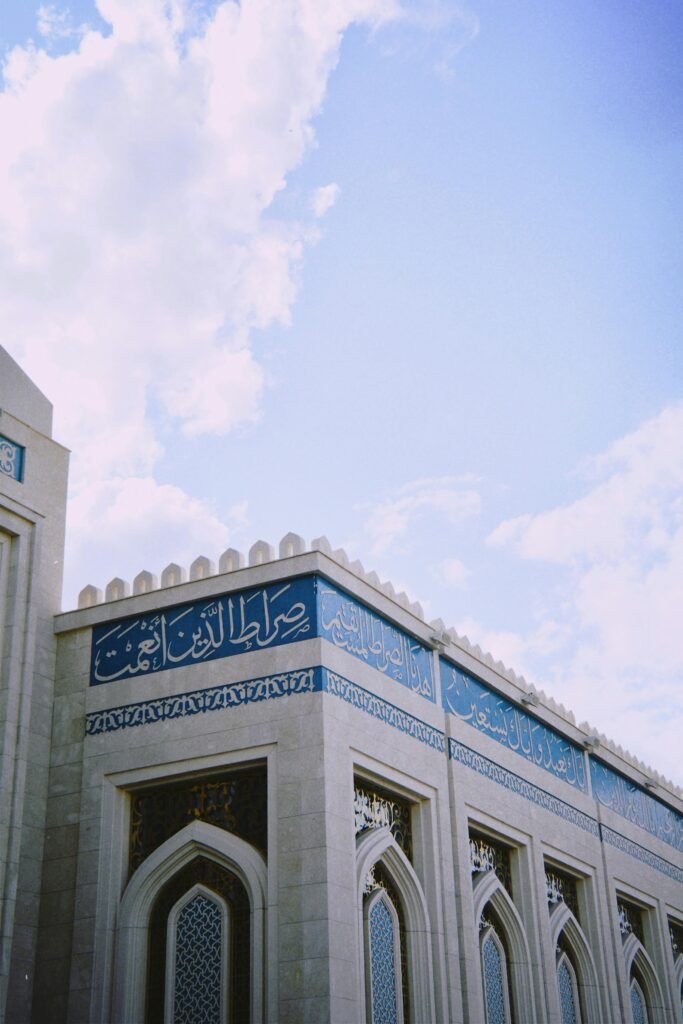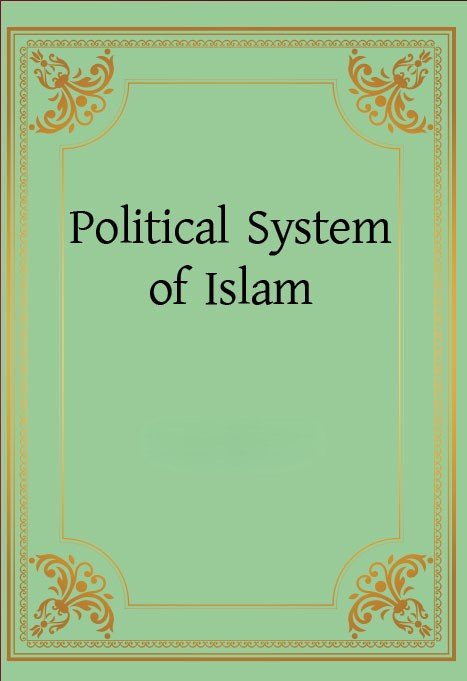Islamic News: Innovative Legal Reforms in All Muslim Countries

In the realm of Islamic News, a transformative wave is sweeping across Muslim-majority nations, unveiling innovative legal reforms that seek to harmonize tradition with modernity. This epochal moment is reshaping societies, elevating justice systems, and rejuvenating the principles of Islam to meet the complexities of today’s world. For anyone eager to understand the depth of these changes, it is vital to explore the roots of the Islamic religion, its historical foundations, and how this sacred tradition inspires contemporary legal metamorphosis.
Through this comprehensive discussion, we will journey from the profound origins of Islamic History, traverse the significance of the Islamic Hijri calendar and Islamic New Year, elucidate joyous celebrations such as Eid, and understand fundamental practices like Roza and Salah. Embedded within this narrative lies the pulse of Islamic Information that breathes life into the evolving landscape of legal reforms.
1. Understanding Islam: The Spiritual and Legal Foundation
1.1 What the Islamic Religion Represents
Islam is not merely a religion; it is a holistic way of life ordained by divine revelation. The word itself, meaning “submission,” reflects a profound surrender to Allah’s will. This submission carries with it a divine blueprint governing personal conduct, social justice, and governance.
At its core, the Islamic religion commands justice (‘Adl), compassion (Rahmah), and accountability (Mas’uliyyah). These principles are embedded in the Qur’an—the eternal word of God—and the Sunnah, the prophetic traditions. The law in Islam—known as Shari’ah—emerges from these sacred sources, setting a framework that guides ethical, moral, and civil behavior.
1.2 The Pillars Supporting Faith and Society
In the tapestry of Islamic religion, the pillars—such as Salah (ritual prayer) and Roza (fasting during Ramadan)—nurture the spiritual resilience of the believer while reinforcing communal solidarity. They symbolize obedience, patience, and social responsibility, qualities mirrored in the evolving legal reforms that prioritize human dignity and societal welfare.
2. A Glimpse into Islamic History and Calendrical Significance
2.1 The Legacy of Islamic History
The story of Islamic History is a saga of courage, enlightenment, and intellectual brilliance. From the life of Prophet Muhammad ﷺ to the successive Caliphates, the unfolding narrative has witnessed the development of complex legal and political systems that underscored justice and equity.
The historical context is indispensable for grasping the innovative legal reforms that contemporary Muslim countries are adopting. These reforms are often informed by centuries-old jurisprudence, adapting age-old principles to the challenges of the modern era.
2.2 The Islamic Hijri Calendar and New Year
Integral to the Islamic identity is the Islamic Hijri calendar—a lunar system beginning with the Prophet’s migration (Hijra) from Mecca to Medina. The Islamic New Year marks this sacred milestone, inviting reflection on spiritual renewal and societal progress.
In many Muslim countries, this period is not only a religious observance but also a time for assessing social justice frameworks and judicial structures, setting the tone for legislative innovations.
3. Celebrations in Islam: Understanding Eid, Roza, and Salah
3.1 What Is Eid?
Eid—whether Eid al-Fitr or Eid al-Adha—is a radiant expression of gratitude, sacrifice, and communal harmony. These festivals rejuvenate faith, foster generosity, and reaffirm the social contract rooted in Islamic law.
Legal reforms increasingly recognize the societal importance of these celebrations by safeguarding religious freedoms and ensuring equitable participation of diverse communities.
3.2 What Is Roza?
Roza—the sacred fast during the month of Ramadan—is a profound exercise in self-discipline and empathy. Beyond spiritual purification, it is a social equalizer that inspires charity and communal care. Legal systems in Muslim countries are adapting to protect the sanctity of this practice, balancing work regulations, healthcare provisions, and social welfare.
3.3 What Is Salah?
Salah is the quintessence of Islamic worship. The ritual prayer, performed five times daily, punctuates a Muslim’s day with reminders of divine presence, responsibility, and community cohesion.
In legal reforms, ensuring spaces and rights for prayer—both public and private—is increasingly recognized as a cornerstone of religious freedom, thereby enhancing social stability.
4. Islamic News: The Current Landscape of Legal Reforms
4.1 The Imperative for Legal Innovation
The Islamic News today is dominated by narratives of groundbreaking legal reforms. These initiatives aim to recalibrate justice systems—addressing human rights, gender equity, financial ethics, and criminal law—while steadfastly rooted in Islamic values.
Such reforms are powerful responses to challenges like globalization, technological advances, and societal expectations. They embody a delicate balance: upholding sacred tradition yet embracing progressive governance.
4.2 Prominent Reforms in Family and Gender Laws
Across many Muslim nations, family laws—once rigid—are witnessing transformative amendments. These reforms address marriage rights, custody, divorce proceedings, and inheritance laws, seeking fairness and protection for women and children.
The Islamic News highlights landmark legislation in countries striving for gender justice, showcasing emotional stories of empowerment and resilience. These reforms reflect a dynamic interpretation of Islamic jurisprudence aligned with universal human dignity.
4.3 Financial and Economic Legal Innovations
The development of Islamic finance has been pivotal. Legal reforms increasingly incorporate Shari’ah-compliant banking systems that prohibit interest (riba) and promote ethical investments.
These novel frameworks in Muslim countries stimulate economic justice, social welfare, and financial inclusion, inspiring hope and economic empowerment within communities.
5. Justice Systems and the Rule of Law in Muslim Countries

5.1 Reinventing the Justice System
The judicial institutions in many Muslim countries are undergoing profound reforms. These aim to modernize court procedures, enhance transparency, and ensure equitable access to justice.
The integration of technology—such as digital case management and e-courts—has increased efficiency, reduced corruption, and reinforced public trust, resonating powerfully in the latest Islamic Religion coverage.
5.2 Criminal Law and Human Rights
Contemporary reforms focus on refining penal codes to align with international human rights standards while honoring Islamic ethical principles. This includes reconsidering hudud punishments, improving due process, and emphasizing restorative justice.
Such developments are emotionally charged and complex but signal an inspiring commitment to humane governance.
6. Educational Reforms Shaping Future Generations
6.1 Modernizing Islamic Education
The fabric of education is being rewoven across Muslim nations. Modern curricula integrate religious teachings with science, technology, and humanities, preparing youth for global citizenship while preserving spiritual identity.
The Islamic News often highlights pioneering educational institutions and visionary reformers leading this renaissance, fostering a generation equipped to navigate faith and modernity.
6.2 Bridging Tradition and Modernity
Reform in Islamic education emphasizes critical thinking and intercultural dialogue, aiming to dispel misconceptions and promote peaceful coexistence.
These educational transformations are vital pillars supporting ongoing legal reforms and broader societal change.
7. Contemporary Challenges and the Path Forward
7.1 Navigating Political Complexities
Legal reforms do not occur in a vacuum; they intersect with geopolitical realities and social dynamics. Many Muslim countries face tensions between conservative and progressive factions.
The Islamic News provides balanced, insightful reportage on how nations negotiate these complexities, striving for unity amid diversity.
7.2 Embracing Pluralism and Inclusivity
Progressive legal reforms increasingly embrace pluralism, recognizing religious minorities, protecting freedom of expression, and fostering inclusivity.
This courageous evolution reflects the profound versatility and enduring relevance of Islam.
Conclusion
In this era of remarkable transformation, Islamic News serves as a beacon illuminating the vibrant, evolving landscape of legal reforms in Muslim countries. These reforms blend tradition and innovation, embodying the timeless principles of justice, mercy, and human dignity enshrined in the Islamic religion.
As the world watches, Muslim nations are crafting legal systems that honor their rich heritage while boldly embracing the demands of contemporary governance. The journey from the profound depths of Islamic History to the present day’s judicial innovations testifies to the resilience and adaptability of Islam.
We invite readers to engage deeply with this unfolding narrative, appreciating the emotional, spiritual, and intellectual vigor driving these reforms. Through this lens, Islamic Information transcends news—it becomes an inspiring testament to faith in action.
